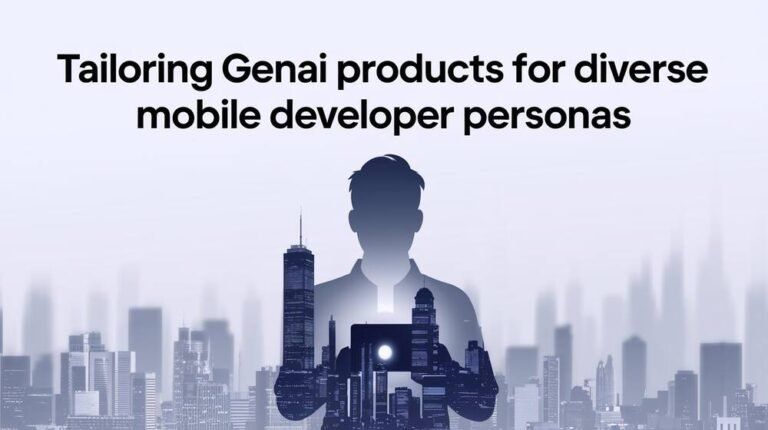Generative AI: Shaping Future Success in Business

In the dynamic landscape of technology, one innovation stands out as a strategic imperative for future success across industries – Generative AI. This groundbreaking technology has transcended being a mere trend, becoming a cornerstone for businesses aiming to stay ahead in the competitive curve. In this extended exploration, we will explore why integrating generative AI into business processes is essential, gaining insights into its benefits, challenges, and ethical considerations. Additionally, we’ll explore the functionalities being developed to provide enterprise-ready generative AI solutions.
Understanding the Strategic Imperative
Generative AI, a subset of artificial intelligence, is not just a buzzword; it’s a strategic imperative for businesses. The ability to generate content, images, and even code autonomously empowers organizations to enhance creativity, streamline processes, and unlock innovative solutions. In a world where staying ahead is synonymous with survival, businesses increasingly recognize the sector-wide AI transformation.
Benefits of Integrating Generative AI
Enhanced Creativity and Innovation
Generative AI enables businesses to break through creative barriers. By autonomously generating content, designs, and ideas, it catalyzes innovation, providing a continuous stream of fresh perspectives that can drive product development and marketing strategies.
Streamlined Processes and Efficiency
Automation is at the core of generative AI. By automating repetitive tasks, businesses can streamline processes, reduce manual workload, and improve overall efficiency. This saves time and allows human resources to focus on higher-value tasks that require creativity and critical thinking.
Personalization and Customer Engagement
Generative AI plays a crucial role in enhancing customer experiences. It can generate personalized content and recommendations by analyzing vast datasets, leading to more meaningful interactions and increased customer engagement. This customized approach contributes to building strong, lasting relationships with clients.
Innovative Product Development
Generative AI is a boon for product development. From creating design prototypes to suggesting novel features, the technology aids businesses in innovating their products. This results in offerings that are not only cutting-edge but also resonate with the evolving needs of consumers.
Cost Savings through Automation
The automation capabilities of generative AI extend beyond efficiency gains. Businesses can significantly reduce operational costs by automating tasks that would otherwise require a substantial workforce. This cost-effectiveness contributes to improved profit margins and resource allocation.
Challenges and Ethical Implications
While the benefits of generative AI are profound, it’s essential to acknowledge the challenges and ethical implications associated with its implementation.
Bias in Generated Content
Generative AI models learn from existing data, which may contain biases. Consequently, generating content that reflects or perpetuates societal biases is risky. Businesses must implement measures to identify and mitigate biases to ensure fairness and inclusivity.
Security Concerns
As generative AI becomes more sophisticated, security concerns also rise. From deepfake technology to the potential misuse of generated content, businesses must prioritize robust cybersecurity measures to protect against malicious use and unauthorized access.
Ethical Use of AI
The ethical use of generative AI is a paramount consideration. Transparency, accountability, and responsible AI practices should be at the forefront of any business’s AI strategy. Striking a balance between innovation and ethical considerations is crucial for generative AI’s sustainable and accountable deployment.
Functionalities for Enterprise-Ready Generative AI
As businesses increasingly recognize the value of generative AI, developing enterprise-ready functionalities is rising.
Customizable Models for Industry-Specific Needs
Generative AI solutions are evolving to offer customizable models tailored to specific industries. Whether it’s healthcare, finance, or manufacturing, businesses can benefit from generative AI models that understand and address the unique challenges of each sector.
Explainable AI for Transparent Decision-Making
The industry is focusing on creating explainable AI models to address concerns related to AI decision-making. These models provide insights into how AI reaches specific conclusions, promoting transparency and understanding.
Continuous Learning for Adaptive Solutions
Enterprise-ready generative AI is designed for continuous learning. This means that as businesses evolve, their AI models also adapt, ensuring that generated content and solutions remain relevant and effective over time.
Collaborative AI Ecosystems
The future of generative AI lies in collaborative ecosystems. Businesses are investing in AI solutions that foster collaboration between humans and AI, creating a symbiotic relationship that leverages the strengths of both.
Cross-Functional Integration
Enterprise-ready generative AI is not confined to specific departments. It is designed for cross-functional integration, allowing businesses to harness its power across various aspects, from marketing and customer service to research and development.
Conclusion
Generative AI is not just a technological advancement; it’s a transformative force shaping businesses’ future success. Companies can responsibly harness the power of generative AI by understanding its benefits, acknowledging challenges, and embracing ethical considerations. As functionalities evolve to meet enterprise needs, integrating generative AI into business processes will continue redefining innovation and success.
Get ready for the future of business with generative AI services with Data Nectar – where creativity knows no bounds.






